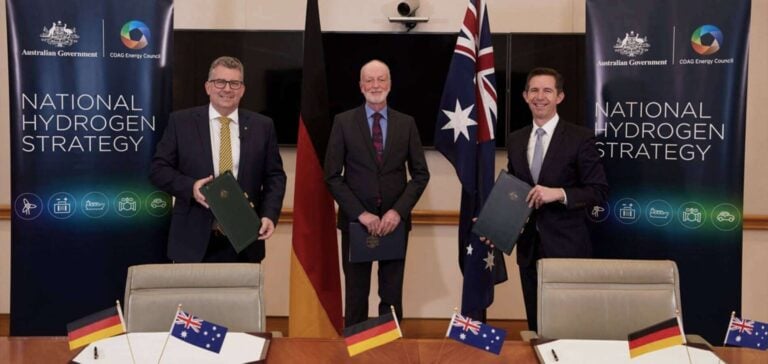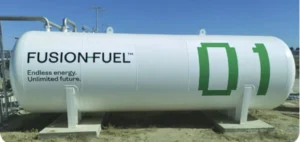Australia and Germany signed an agreement on June 13, 2021 to produce renewable hydrogen.
Australia aims to become a major hydrogen exporter.
Germany, on the other hand, has considerable export expertise.
Australia and Germany set up joint incubator
TheAustralian Renewable Energy Agency (ARENA) will team up with the German Federal Ministry of Education and Research(BMBF).
The two institutions will manage the German-Australian Hydrogen Technology and Innovation Incubator, called HyGATE.
The incubator aims to support projects, trials, demonstrations and research in the field of hydrogen.
“We have already invested $115 million in renewable hydrogen electrolyser research, studies and deployments. ARENA has the opportunity to highlight Australia’s innovation and commitment to being at the forefront of the renewable hydrogen economy,” said ARENA CEO Darren Miller.
€65 million in new hydrogen projects
Australia and Germany agree to invest up to 65 million euros, in new renewable hydrogen projects.
Australia will provide the funding from the A$565.8 million committed to the 2021-22 budget initiative.
The goal is to establish partnerships and low-emission technology initiatives with strategic partners.
Australia, the Indo-Pacific’s future hydrogen producer?
ARENA and BMBF plan to open a new funding round for HyGATE in the first quarter of 2022. Australia wants to become a leader in hydrogen exports to meet the demands of the Pacific Rim states.
Japan alone plans to import up to 10 million tonnes of hydrogen per year.
The Republic of Korea, China and the USA will have millions of hydrogen-powered vehicles on their roads.
As for the EU, it will use hydrogen for heating, transport and industry to achieve zero emissions by 2050.






















